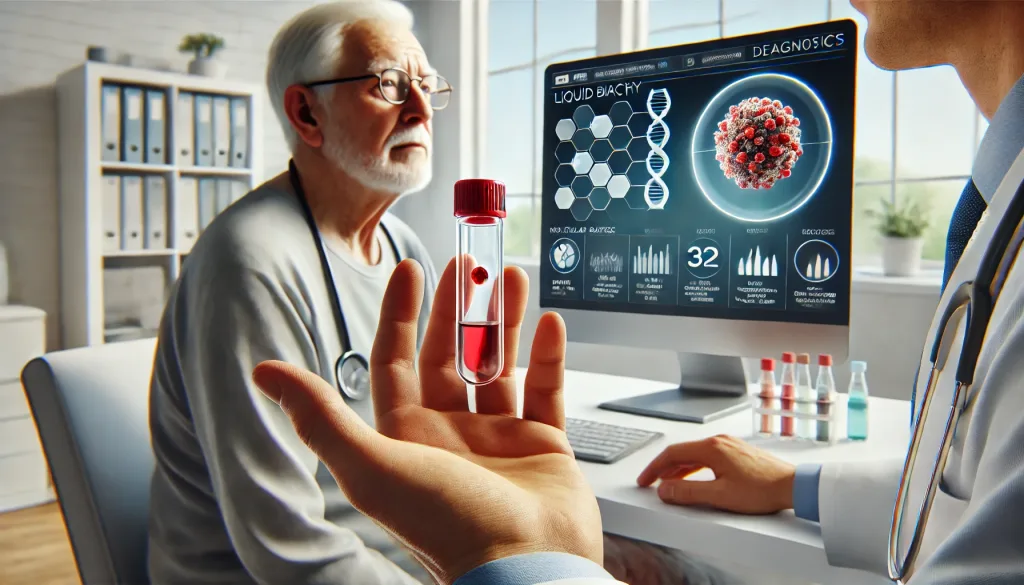Cancer care for seniors is experiencing rapid advancements, driven by innovative technologies, alternative approaches, and personalized medicine. The aging population is particularly susceptible to cancer due to biological changes and cumulative exposure to environmental risks. For more State of the Art and proven tips for early detection visit Cancer For Older Adults

AI and Robotics in Cancer Care for Seniors
Artificial Intelligence (AI) and robotics are revolutionizing the landscape of cancer diagnosis, treatment, and care for older adults. AI algorithms analyzes medical records, imaging scans, and genetic profiles to detect cancer at its earliest stages. AI-powered tools are capable of identifying subtle patterns that may elude human experts, significantly enhancing early detection.
Robotic-assisted surgery has emerged as a game-changer, offering precision and minimally invasive techniques. Robotic systems, like the da Vinci Surgical System, allow surgeons to perform intricate procedures with greater accuracy. This reduces the complications and shortens the recovery times. These advancements enable elderly patients, once considered too frail for traditional methods, to undergo surgery.
Additionally, AI integrates into treatment planning, allowing oncologists to design highly personalized treatment regimens. Predictive analytics identify the effective combination of therapies based on a patient’s unique genetic makeup, medical history, and cancer type. This minimizes side effects and improving outcomes.
Personalized and Targeted Therapies
Targeted therapies have become a cornerstone of modern oncology. This offers tailored treatments that specifically attack cancer cells without damaging healthy tissue. Immunotherapy, which stimulates the patient’s own immune system to fight cancer, has shown promising results in older adults. Leading innovations like checkpoint inhibitors and CAR-T cell therapy provide hope for treating cancers once considered untreatable.
Precision medicine takes targeted therapy further by using genomic profiling to identify mutations driving the cancer. This enables the use of drugs that specifically target those mutations, making treatments more effective and less toxic. Advances in biomarker testing have made these therapies more accessible to older populations, ensuring that age does not become a barrier to receiving cutting-edge care.
Alternative and Complementary Medicine
Alternative and complementary medicine has also gained attention in cancer care for older adults, often as supportive therapies alongside conventional treatments. Practices such as acupuncture, meditation, and yoga have been shown to alleviate symptoms like pain, nausea, and anxiety, improving the overall quality of life for elderly patients.
Herbal remedies and dietary supplements are sometimes used, but it is crucial to approach these with caution, as they can interact with conventional treatments. Consultation with healthcare providers is essential to ensure safety and efficacy. Emerging evidence suggests that integrative oncology, which combines traditional medicine with complementary approaches, may help enhance treatment outcomes and provide holistic care.
Innovative Screening and Detection Tools
Advancements in screening technology are enabling earlier and more accurate detection of cancer in older adults. Liquid biopsies, a non-invasive method of detecting cancer through a simple blood test, are gaining traction. These tests can identify circulating tumor DNA, providing insights into the presence and progression of cancer without the need for invasive procedures.
High-resolution imaging technologies, such as PET-CT and MRI, have become more sophisticated, offering detailed views of tumors and aiding in precise diagnosis. AI integration into these imaging systems further enhances their accuracy, ensuring that even the smallest abnormalities are detected.
Supportive Care and Digital Health Tools
Supportive care is an essential aspect of cancer treatment for older adults, addressing physical, emotional, and social challenges. Digital health tools, including mobile apps and wearable devices, are playing a significant role in this area. These tools help monitor vital signs, manage symptoms, and ensure medication adherence, allowing healthcare providers to remotely track patients’ progress and intervene when necessary.
Telemedicine has also gained popularity, especially for elderly patients who may face mobility issues. Virtual consultations enable continuous care and reduce the need for frequent hospital visits, making treatment more accessible and less burdensome.
External Resources for Further Reading
- National Cancer Institute: Advances in Cancer Research
- American Cancer Society: Targeted Therapy
- AI in Oncology: Transforming Cancer Care
- Integrative Oncology: Complementary Approaches
- Robotic Surgery for Cancer
- Cancer Screening for Older Adults